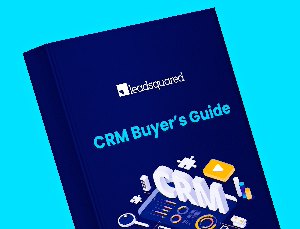The global CRM (Customer Relationship Management) software market is forecast to grow to $40.26 billion in size by 2023. In 2019, SaaS or cloud-based CRM solutions accounted for 75% of the CRM marketplace spend.
The growing affinity towards SaaS CRM is the result of the immense benefits it brings over on-premise CRM software.
Before we dig into details, let’s look at the basics.
What is cloud-based CRM?
A cloud-based CRM is a CRM software that is hosted on the cloud. Cloud hosting means the on-demand availability of software services. Users can access the cloud CRM from any device and location. One of the remarkable benefits of cloud-based CRMs is mobility. Moreover, in SaaS products, your service provider takes care of everything – from data management to hosting, while you can focus on your core business.
CRM has evolved over the years from an on-premise version to a cloud-based version and it has proven to be more accessible, cost-effective, reliable, and secure.
Difference between on-premise and cloud CRMs.
In this article, we will cover the benefits of cloud-based CRM. It will make your CRM search and evaluation simpler and faster. Also, you will know the hosting option that will best suit your business structure.
Benefits of Cloud-based CRM
1. Security
While buying software, security is always the topmost concern of every organization. You might be skeptical about storing databases on the internet. But the cloud is a safe place to store your data. It is also reliable in cases of server breakdowns, as the data has a backup on the cloud. Business spokespersons have listed the following as their key concerns in terms of security.
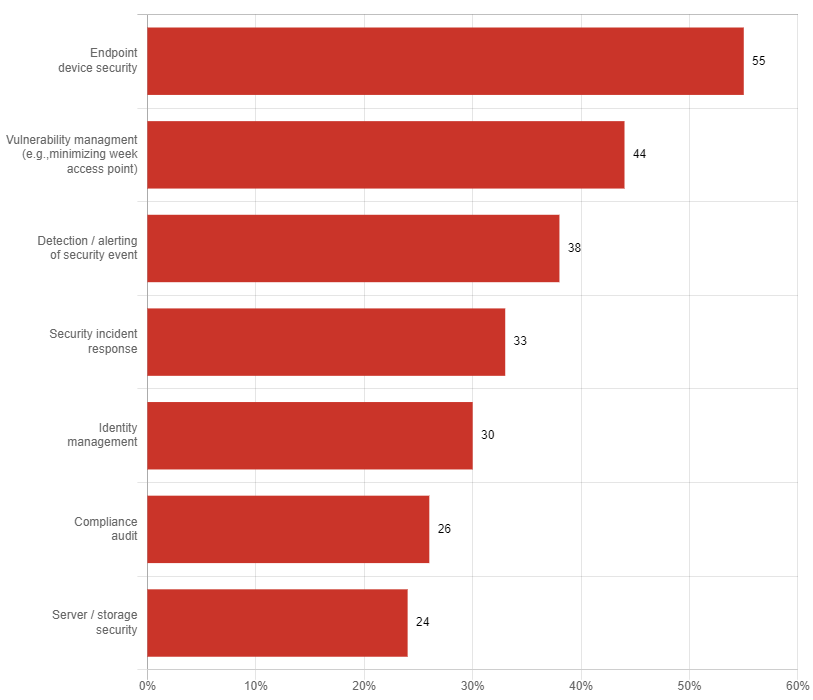
Now, you might think that your data is at risk due to the chances of cyber-attacks and phishing. But, with SSL encryptions and Information Security Management System (ISMS) compliances, your data is safe on the cloud. Contrary to how it may seem, even in-house CRM cannot ensure cloud-level security.
2. Maintenance
Most of the business users find software maintenance as a pressing concern. Not only do they need to suspend business activities, but also take care of data migration during feature updates. Some of the factors that make in-house software maintenance difficult are:
- Negligence in the use of programming standards and protocols
- Outdated programming techniques
- System implementation gaps
- Missed prototyping during the initial development phases
- Human resource transitions when the developers leave the organization or transit into a new role
- Incomplete testing during deployment
- Lack of scalability and customization options
- Product developed to satisfy immediate needs without considering the entire business vision.
Maintenance is where cloud-based CRM outshines on-premise further. Every software requires regular upgrades and fixes to adapt to dynamic user preferences. In such situations, your service provider takes complete care of the upgrades, within a much shorter time and typically at no extra cost . It also eliminates the need for in-house developers who build, monitor, and maintain the servers. In general, 17% of businesses plan to move to the “as-a-Service” model to save maintenance costs.
3. Mobility
Imagine yourself in a situation where you need to give real-time updates to your boss about a customer. Here, you might choose to talk to your boss on your mobile phone. But the question is – do you have the exact information? What if you are not on your desk?
This problem will not be a problem if your CRM is flexible enough to provide you real-time information irrespective of your location. A mobile CRM app will not only give you flexibility but also increase your team’s efficiency by fast document collection, real-time sales reports, quick customer servicing, and agent-location tracking.
The CRM software hosted in the cloud serves the benefits of mobility. Cloud CRM automatically syncs data between mobile and web. Therefore, no matter what device you use, or wherever you are – the information will always be at your disposal.
Along with mobility, Cloud CRM also ensures data transparency. In instances when you are not available, your manager or other team members can access shared reports and customer information (within their access rights), thus eliminating dependencies due to the non-availability of the team members.
4. Scalability
The motto “we grow together” is only possible if you have a CRM system in place which scales according to your needs. Once you start expanding, an on-premise CRM might not be able to map your entire business process. On-premise CRMs generally have limited customizations and functionalities. Whereas you can scale up or down a cloud-based CRM anytime according to your business performance. Your service provider handles all the implementation changes without disturbing your ongoing process.
When you scale up, you might need additional tools for customer service, marketing automation, sales force automation, knowledge management, channel management, and call center management. Moreover, the COVID-19 pandemic has acted as a catalyst for business transformation towards the cloud to make the remote workforce more effective. The SWZD State of IT 2021 survey reveals that 76% of businesses plan on long-term IT changes. Leaders are planning to increase their cloud and managed service spending and reduce hardware spending.
5. Cost
According to the LinkedIn State of Sales survey 2019, 64% of sales professionals report using CRM tools. Overall, CRM adoption has grown 113% since 2016.
Basis the scale of your enterprise, you might want to build an in-house CRM. But it will incur extra costs and efforts in hiring developers, buying hardware, and maintaining servers. Most small to mid-size businesses estimate their monthly cost per user is around 60-70$ for a cloud CRM. Whereas, a licensed version may cost about $3000, with extra upfront costs for maintenance.
The approved index also states that on-premise CRM can cost around $650 per user per year, whereas an online CRM will cost only about 350$ per user per year.
Thus, cloud-based CRMs are cost-effective. Moreover, if your existing CRM SaaS does not meet your business requirements, you can cancel your subscription anytime without any grave expense.
6. Customization
There are many service providers in the market, such as Salesforce, LeadSquared, Zoho, and Sugar CRM. Only some of these allow customization according to your requirements at reasonable costs. Moreover, with some products, you need not pay for the features you do not need. Software shopping has now become like grocery shopping, where you have the freedom to pick and choose the items of your choice.
For example, in LeadSquared, you have the choices for field force automation, sales execution CRM, marketing automation, call center CRM and self-serve portals. You can choose the product and browse plans according to your business needs and budget.
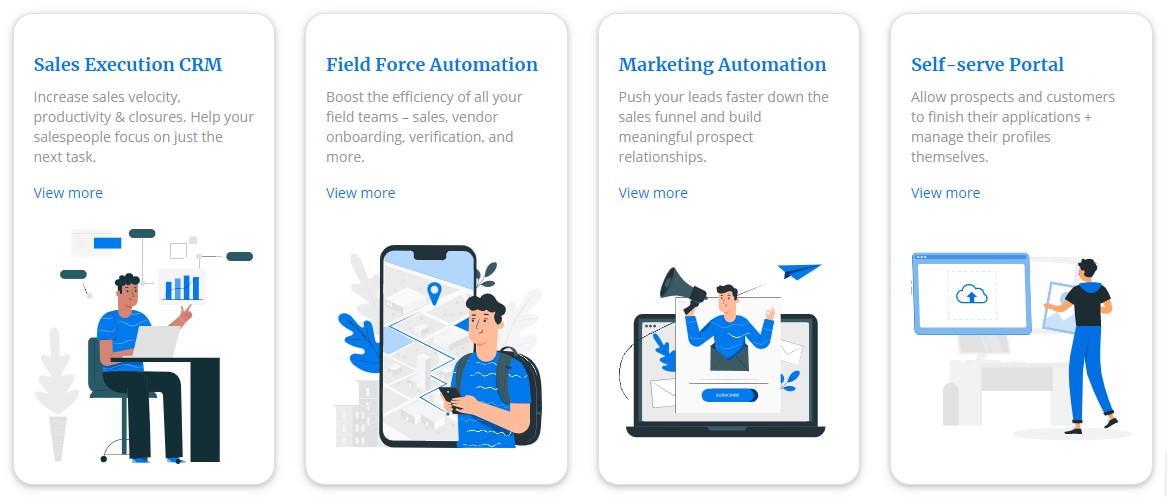
Compare plans and pricing
7. Host environment
While considering the cloud CRM, your concern about hosting is obvious. Many vendors provide a ready-to-use hosting environment on a monthly/annual fee basis to run your CRM portal. Many vendors also tie-up with cloud service providers like AWS (Amazon Web Services), Microsoft Azure, Google Cloud, IBM Cloud, to name some.
In the on-premise software, you will need to use local resources (office intranet) or virtual private servers and personal hardware. Thus, there is a cost associated with hosting as well in the on-premise software. Cloud CRM completely eliminates the hardware cost. You can choose the hosting environment provided by the vendor or the above cloud service providers. This way, you can avoid the technical aspects and complications of setting your own hosting.
Concluding Remarks
Well, by now, you must be clear about the type of CRM that is best for your business. ISMS compliant, cloud-based CRM is your go-to option. If you are looking for the above capabilities in a CRM, then you can try LeadSquared, which is a cloud-based CRM custom-built for B2C enterprises and SMBs. You can also request your personalized demo.







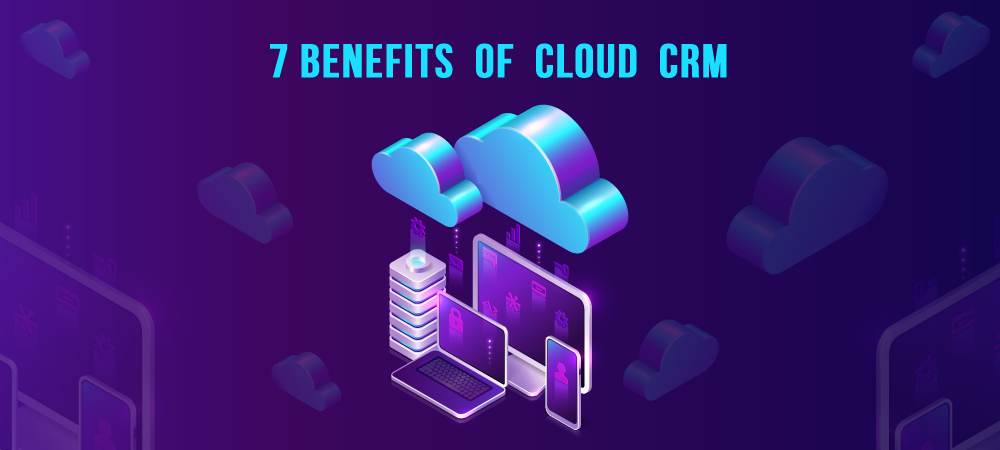
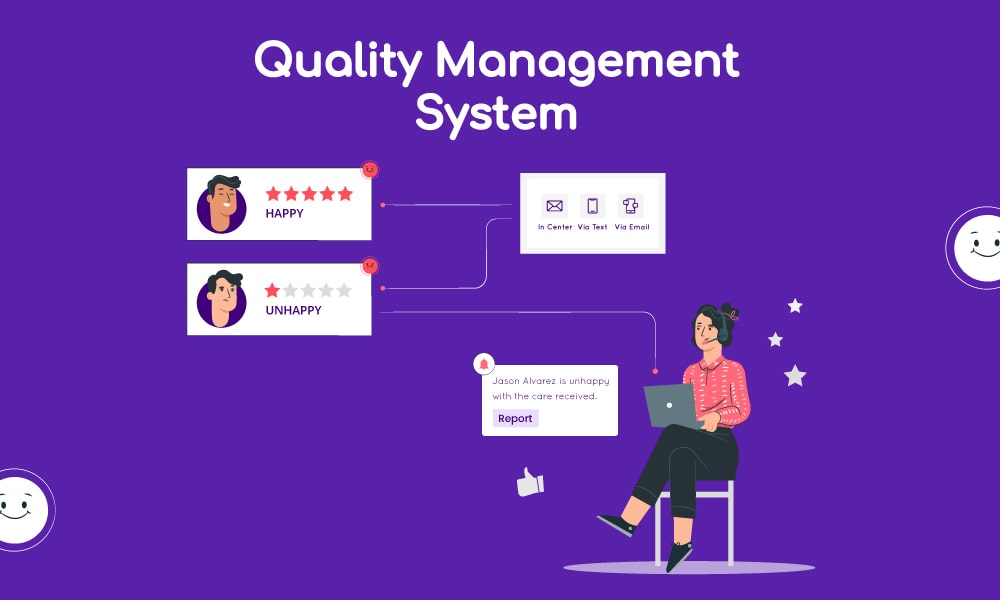

![[Webinar] Into the Unknown: Embracing a Bold, Student-First Strategy for Enrollment Success](https://www.leadsquared.com/wp-content/uploads/2024/04/Add-a-subheading.gif)
![[Webinar] Beat inflation's bite: 6 Resilient Strategies for Lending Sales](https://www.leadsquared.com/wp-content/uploads/2024/04/lending-speaker-pop-up.gif)
